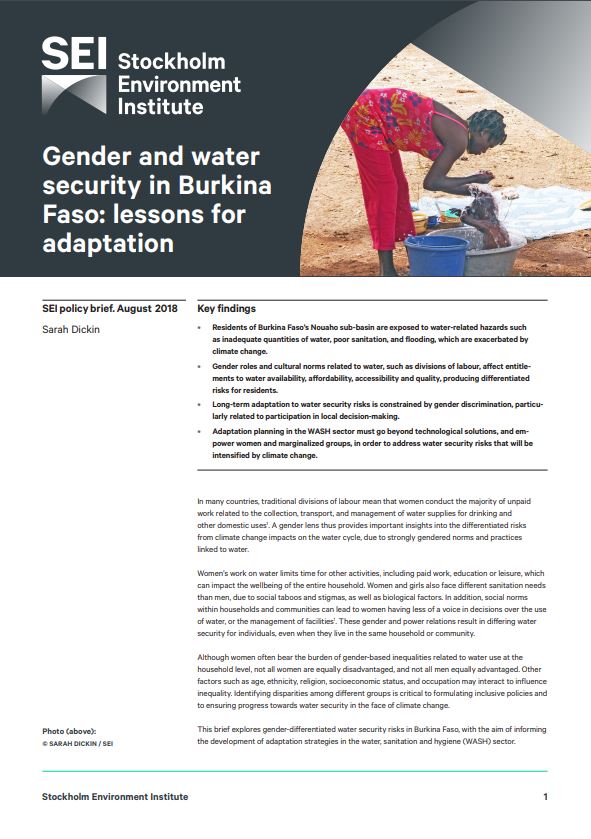In many countries, traditional divisions of labour mean that women conduct the majority of unpaid work related to the collection, transport, and management of water supplies for drinking and other domestic uses.
Women’s work on water limits time for other activities, including paid work, education or leisure, which can impact the wellbeing of the entire household. Women and girls also face different sanitation needs than men, due to social taboos and stigmas, as well as biological factors. In addition, social norms within households and communities can lead to women having less of a voice in decisions over the use of water, or the management of facilities.
These gender and power relations result in differing water security for individuals, even when they live in the same household or community. This brief explores gender-differentiated water security risks in Burkina Faso, with the aim of informing the development of adaptation strategies in the water, sanitation and hygiene (WASH) sector.

